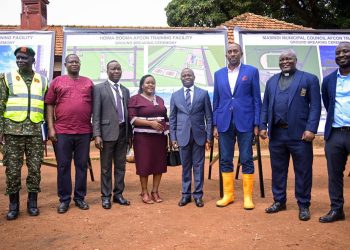The Olympic Refuge Foundation, working with People for Development, Right to Play, and other partners, has launched Phase Two of the Game Connect project—a sports-driven initiative aimed at improving mental health and emotional resilience among refugees in Uganda.
Originally launched in 2020, the program targets youth aged 15 to 24 from refugee and host communities.
It uses four key sports—football, netball, volleyball, and basketball—not just for play, but as a tool for emotional healing.
The aim is to help young people manage stress, anxiety, and depression while also rebuilding confidence and identity through teamwork and routine.
Dr. Donald Rukare, President of the Uganda Olympic Committee, called the project a “game changer” for both youth empowerment and inclusion.
“As the Olympic Committee, we’ve been exploring how sport can be used to tackle anxiety and depression, and the results so far have been overwhelmingly successful. We’re excited to see where Phase Two will take us,” he said during the launch.
The event also highlighted the impact of the first phase. One standout story is that of Gloria Aya, a netball player from Acholi Quarters whose journey from adversity to athletic recognition has inspired many.
Thanks in part to media coverage, Aya has become a role model for young refugees seeking to change their lives through sport.
Joanitta Nannyunja, Program Advisor at AVSI Foundation, and Brandon Katura, Project Coordinator at the UOC, praised the project’s achievements so far and shared plans to expand its reach.
With Phase Two now rolling out, the goal is to bring structured sports programs to even more refugee communities across Uganda, combining physical activity with emotional support and a renewed sense of purpose.





























